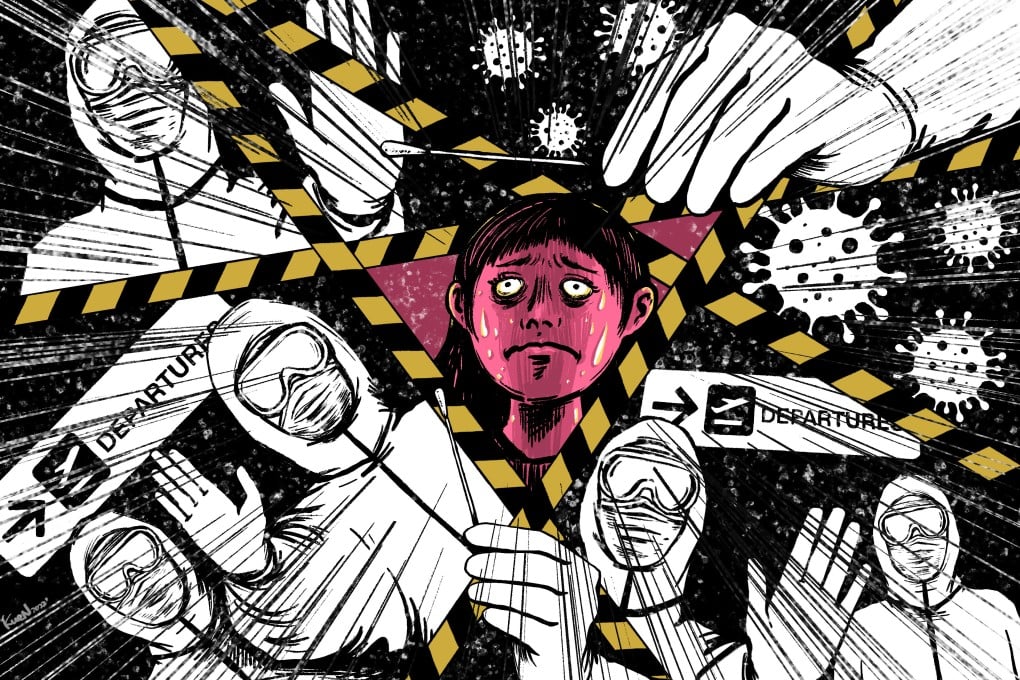Human cost of China’s zero-Covid policy measured in stress, anxiety
- Lockdowns and unpredictable restrictions have led to soaring mental health problems in numbers which may exceed global averages
- ‘Collective psychological trauma’ a consequence of the country’s unprecedented measures to control the pandemic

When Jenny Li took her six-year-old son to the airport for a flight from Beijing to Los Angeles, she was unsure if they would be able to board the plane.
With the city in partial lockdown, public transport between her home and the airport was suspended. Flights could be cancelled at any moment, and there was a possibility border control staff could prevent them from leaving, despite confirmation from China’s immigration authorities that she and her son could travel.
“I was jittery. Many rules and routines have been changed under China’s stringent Covid-19 controls,” said Li, 46, a Beijing resident whose American-born son was about to start school in the US.
Li was prepared for difficulties, after hearing stories from friends who had encountered trouble or failed to leave the country as China encouraged people to cut “unnecessary trips” during the pandemic.
But she was still startled when border control officials stopped her for an hour-long inquiry. “I argued China’s policy does not prohibit people from leaving. They said implementation could be flexible for the sake of Covid-19 control,” Li said.
After a prolonged discussion the travel documents were confirmed, but they were still reluctant to let Li go so she called the National Migration Administration’s hotline and was finally allowed to leave, 10 minutes before the plane’s departure.